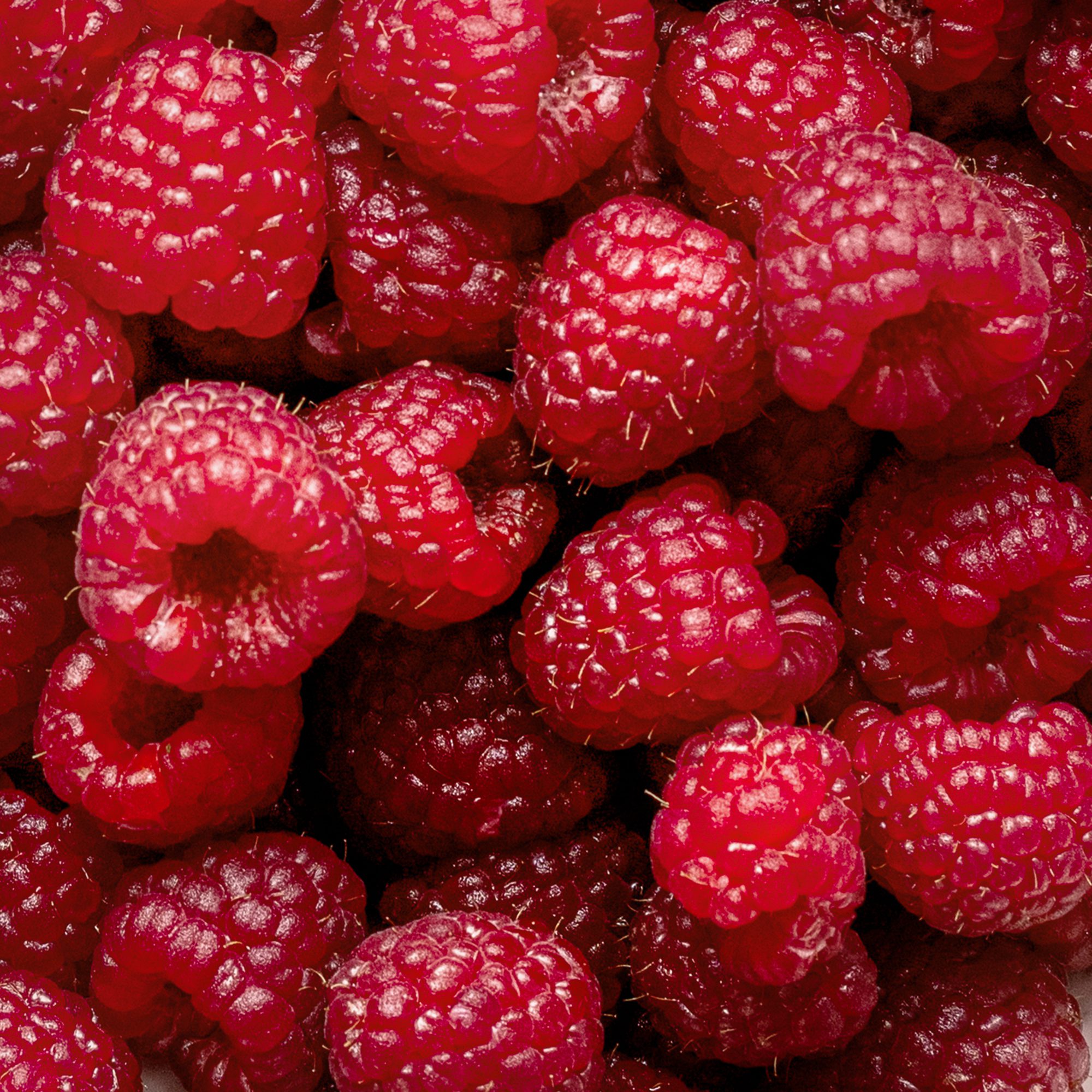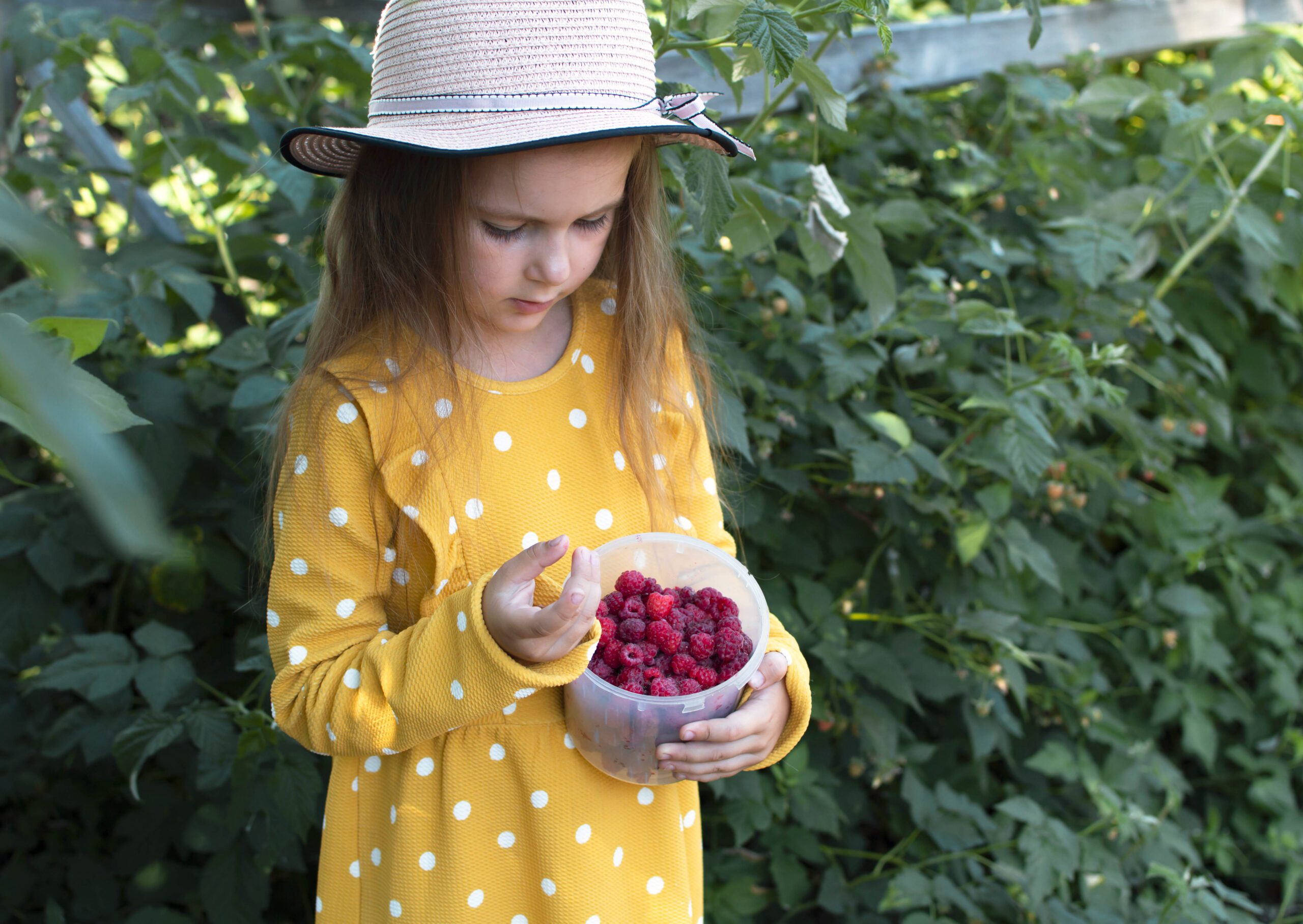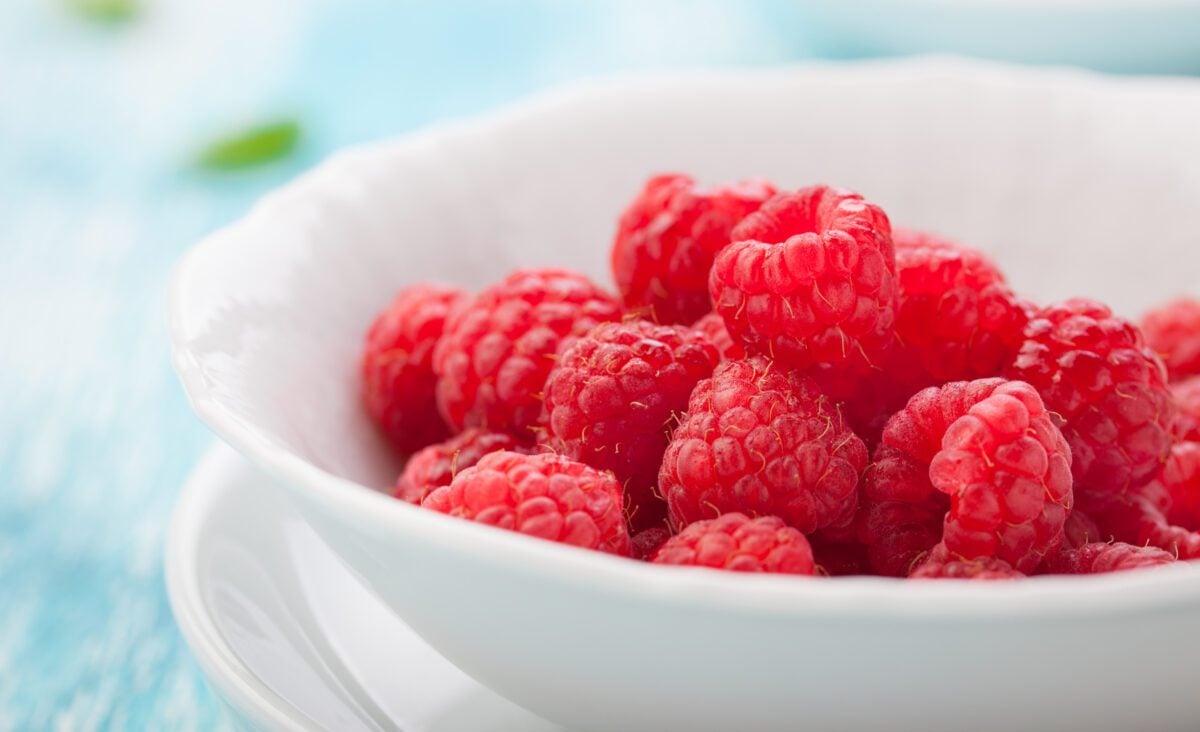Raspberry: A garden gem
The raspberry, a delicate and flavorful fruit, is a gem of the summer garden. Its sweet and slightly tangy taste makes it irresistible and cherished for both its taste and nutritional benefits.
In this article, we will explore the origin of the raspberry, its history, different varieties, symbolism, health benefits, and nutritional value.
Origins of the Raspberry
The raspberry belongs to the genus Rubus, of the Rosaceae family, and its Latin name is Rubus idaeus (literally “bramble of Ida”). Native to Europe and Asia, the raspberry grows naturally in temperate regions. It has been cultivated for centuries, but its domestication and intensive cultivation truly began in the Middle Ages. The earliest traces of raspberry cultivation date back to Greek and Roman times.


Raspberry in History
The Romans used raspberries not only as food but also for their medicinal properties. During the Middle Ages, raspberries became a cherished fruit in monastic and royal gardens. In France, raspberry cultivation intensified from the 18th century onwards, thanks to agronomists’ efforts to improve existing varieties.
Raspberry bushes have traversed centuries to become an iconic fruit in our modern gardens.
Varieties of Raspberries
There are many varieties of raspberries, each with its own characteristics:
- Rubus idaeus ‘Heritage’: An everbearing variety, producing fruit in summer and autumn.
- Rubus idaeus ‘Willamette’: Known for its large and sweet fruits, ideal for making jams.
- Rubus idaeus ‘Golden Bliss’: A yellow-fruited variety, sweet and less acidic than red varieties.
- Rubus idaeus ‘Glen Ample’: Highly prized for its productivity and large fruit size.

Symbolism of the Raspberry
The raspberry is often associated with love and passion due to its intense red color. In some cultures, it also symbolizes kindness and benevolence.
Discover our recipe for chocolate dome, praline mousse, and raspberry coulis heart for a romantic dessert.
Health Benefit
Raspberries are a true powerhouse of health benefits:
- Antioxidants: Rich in antioxidants such as flavonoids and anthocyanins, raspberries help combat free radicals and reduce the risk of chronic diseases.
- Vitamin C: A handful of raspberries provides about 30% of the recommended daily intake of vitamin C, essential for the immune system.
- Fiber: Raspberries are an excellent source of dietary fiber, promoting good digestion and contributing to satiety.
- Vitamins and Minerals: They also contain vitamins K and E, as well as minerals like magnesium and potassium.
Nutritional Value
For 100 grams of raspberries:
- Calories: 52
- Protein: 1.2 g
- Fat: 0.7 g
- Carbohydrates: 11.9 g
- Fiber: 6.5 g
- Vitamin C: 26.2 mg
Cultivation and Gardening Tips
Growing raspberries can be very rewarding. Here are some tips for successful cultivation:
- Location Choice: Plant raspberries in a sunny spot with well-drained soil.
- Soil Preparation: Enrich the soil with compost before planting.
- Planting: Plant raspberries in autumn or early spring, spacing the plants 60 cm apart.
- Watering: Water regularly, especially during dry periods.
- Pruning: Prune everbearing raspberries after the autumn harvest and non-everbearing varieties after the summer harvest to encourage new cane production.
Cultivation Calendar in France
| J | F | M | A | M | J | J | A | S | O | N | D |
|---|---|---|---|---|---|---|---|---|---|---|---|
| 🟡 | 🟡 | ||||||||||
| 🟤 | 🟤 | ||||||||||
| 🟢 | 🟢 | 🟢 | 🟢 | 🟢 |
🟡 Protected Sowing | 🟤 Direct Sowing | 🟢 Harvest
Cultivation Calendar in Canada
| J | F | M | A | M | J | J | A | S | O | N | D |
|---|---|---|---|---|---|---|---|---|---|---|---|
| 🟡 | 🟡 | ||||||||||
| 🟤 | 🟤 | ||||||||||
| 🟢 | 🟢 | 🟢 |
🟡 Protected Sowing | 🟤 Direct Sowing | 🟢 Harvest
Our Recipes Featuring Raspberries
Conclusion
Raspberries are an exceptional fruit, both in flavor and nutritional properties. Regular consumption can contribute to a balanced and healthy diet. To discover delicious raspberry-based recipes, check out our selection on our website.
Culinary Uses
Raspberries are a versatile ingredient that can be used in a variety of dishes:
- Desserts: Raspberries are perfect in tarts, cakes, crumbles, and sorbets.
- Jams: Homemade raspberry jams capture the pure flavor of the fruit.
- Salads: Add raspberries to your salads for a touch of freshness and color.
- Smoothies: Blend them with other fruits for an antioxidant-rich smoothie.
- Sauces: Use them to create sweet or tangy sauces to accompany meats and desserts.

